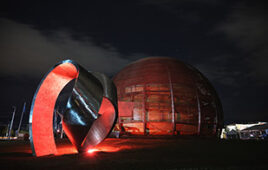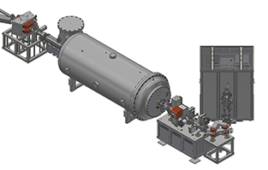The Center for Electrochemical Engineering at Ohio Univ.’s Russ College of Engineering and Technology has received a National Science Foundation (NSF) award to establish a new industry university cooperative research center in Athens, Ohio, with partner site Washington University-St. Louis.
Led by Russ Professor of Chemical Engineering and Center for Electrochemical Engineering Director Gerri Botte, research at the new Center for Electrochemical Processes and Technology (CEProTECH) will focus on electrochemical alternatives to conventional chemical and biological processes, with the goal of enhancing advanced production capabilities, via a consortium model.
Consortium members will have access to pre-competitive, industry-driven research results and a dedicated 20,000-square-foot facility, located on Mill Street in Athens, Ohio, with more than $7 million in state-of-the-art equipment and infrastructure; students with specialized expertise in electrochemical engineering; and relationships with faculty, government labs and agencies, and other industry members.
Leading companies around the world in chemical, energy, oil and gas, aeronautical and other industries already are joining in order to benefit from increases in energy efficiency and manufacturing capacity; decreases in operational costs, emissions and water consumption; and other improvements.
“With this Industry/University Cooperative Research Center (I/UCRC) Collaborative Award to Ohio Univ. and Washington Univ., CEProTECH joins the more than 60 NSF centers across the nation that partner with industry to fund students in the conduct of use-inspired fundamental research,” said Lawrence Hornak, program director of NSF’s directorate for engineering in the division of industrial innovation and partnerships. “The NSF looks forward to the growth of CEProTECH and the benefits realized to U.S. competitiveness in the sectors it serves achieved through this I/UCRC’s partnerships.”
CEProTECH’s research will be founded on traditional electrochemical processes—used for the production of chlorine, hydrogen and aluminum and in products such as batteries and fuel cells—as well as processes that typically wouldn’t use electrochemical methods, such as water remediation, and advanced synthesis for manufacturing specialty gases, chemicals, materials such as graphene and products such as fertilizers.
Ohio University teams will work on experimental techniques, process design, and prototyping, while Washington University will focus on modeling.
Joseph Shields, vice president for research and creative activity and dean of the Graduate College, called the launch of CEProTECH a major achievement. “This exemplifies Ohio Univ.’s commitment to partnering with industry to address critical problems, and to train students who will be future leaders in technology innovation,” he said.
This will be the second NSF I/UCRC for the Russ College. The first was the Institute for Corrosion and Multiphase Technology, which provides research for leading oil and gas companies worldwide. Established as an I/UCRC in 1993, its operating budget has grown to more than $3 million annually.
Russ College Dean Dennis Irwin said the new center exemplifies the college’s goal to provide education and research focused on creating for good.
“The award of a National Science Foundation I/UCRC is an indication of outside recognition, at the highest levels of peer review, of Dr. Botte and her colleagues’ innovative work applying electrochemical engineering principles to problems facing society today in the areas of renewable energy and environmentally responsible product development,” Irwin said. “The award will certainly place Ohio University, the Russ College, and the Department of Chemical and Biomolecular Engineering among the top research institutions in the area of electrochemical engineering,” he added.
What is an I/UCRC?
In an I/UCRC, a university provides high-quality, industrially relevant fundamental research while industrial partners support and collaborate in research and education, resulting in the direct transfer of technology to U.S. industry. This ultimately improves the industry’s competitive posture in world markets.
“Being named an NSF I/UCRC is prestigious, because the support of the NSF acknowledges that our research is unique and that we are experts in this area, making us attractive to industry,” said Botte, inventor of electrochemical technology that converts human waste water to hydrogen for use in fuel cells—also known as “pee-to-power.”
Because graduate and undergraduate students will perform research, CEProTECH will provide the next generation of engineers and technologists with a broad, industrial perspective while advancing the fundamentals of electrochemical science and engineering to facilitate cross-cutting process analysis and research.
“Due to recent technological advancements and a changing economic climate, electrochemical technologies and processes represent a relatively untapped frontier of opportunity for unique, enabling transformative solutions,” Botte said.
“This diversity of scope will enable CEProTECH to capitalize on opportunities in various market sectors, and will provide sustainability independent of specific industry demand cycles,” Botte said.
Source: National Science Foundation




